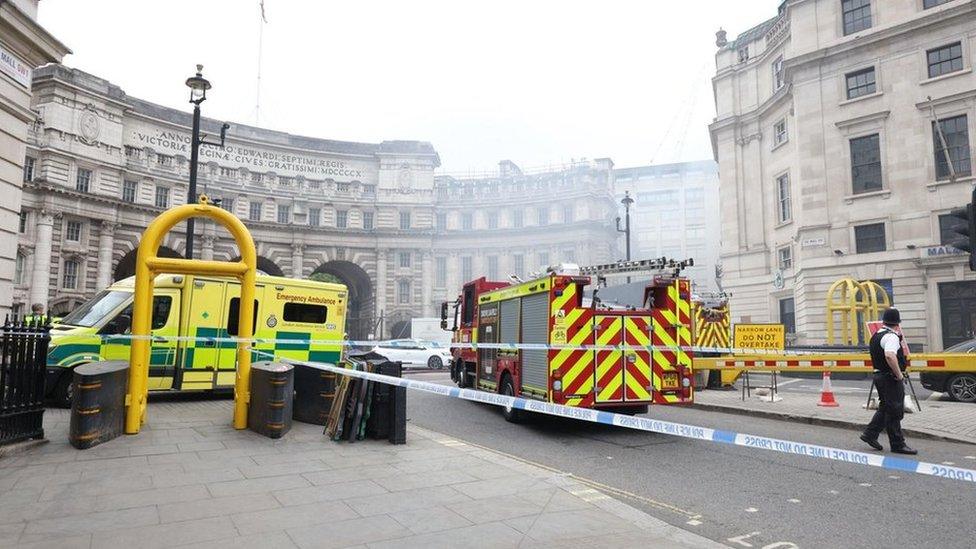London wildfires: Firefighters felt like they were in warzone
- Published
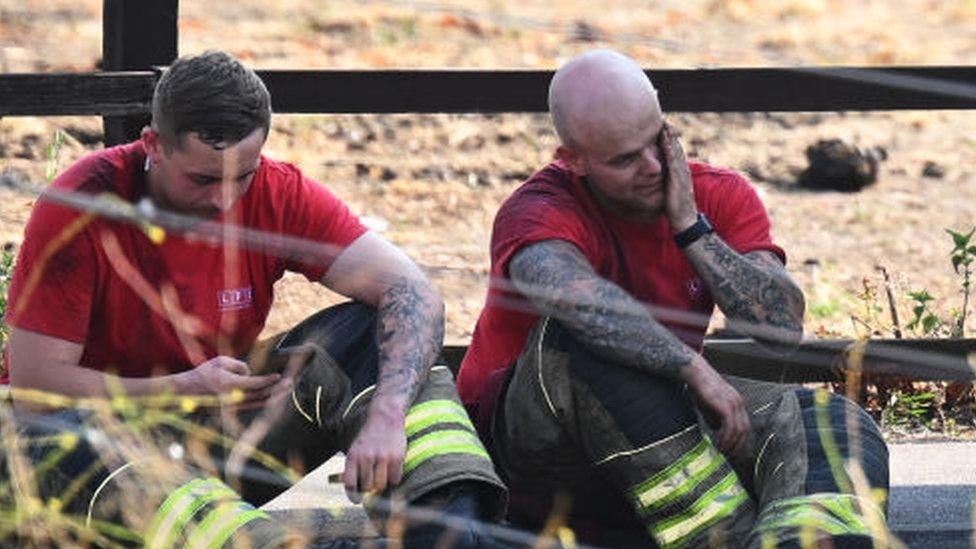
Tackling the wildfires at the heart of London's major incident felt like being in a warzone, a fire boss has said.
Soho station commander John Singleton co-ordinated the response to the fire in Wennington, east London, on Tuesday which destroyed 14 homes.
Comparing the situation to the Blitz, he said it was "probably one of the worst days" in his 22-year career.
The heatwave sparked the biggest response since World War Two. He said colleagues could not have done more.
With temperatures topping 40C, emergency services declared the major incident due to the scale of fires in the capital and beyond.
London Fire Brigade (LFB) dealt with 1,146 incidents in 24 hours, Mr Singleton said, stretching resources to the limit.
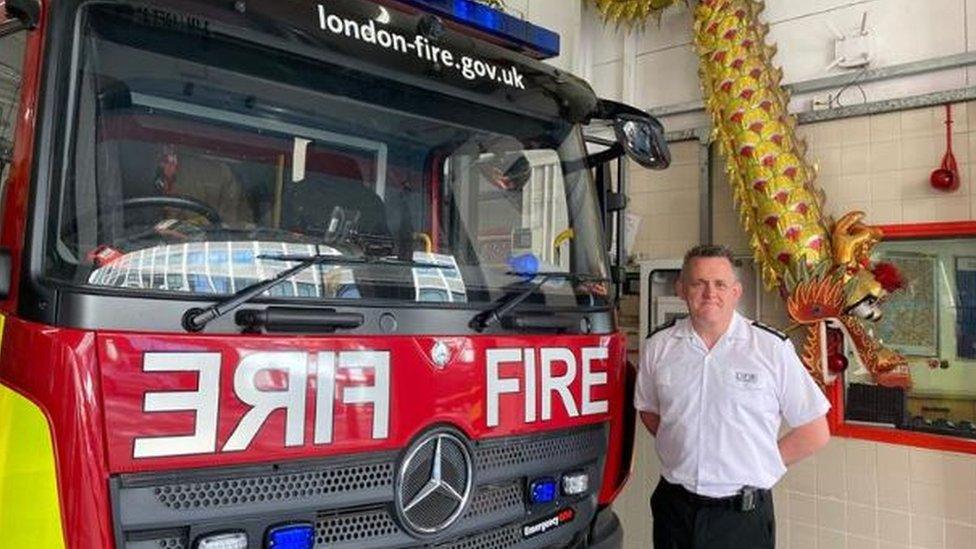
John Singleton said he and his colleagues were under "enormous pressure"
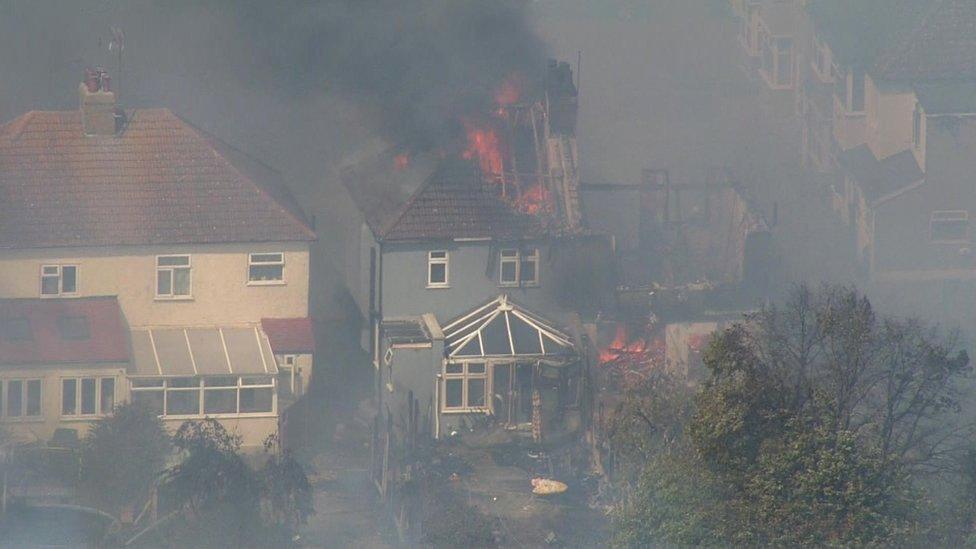
Several houses were consumed by the fire in Wennington
"Emotionally and physically it was draining for everybody," he said.
"We were watching cars burn, we were watching fires burn... it was like a warzone because we were walking past houses that we couldn't save and they were burnt out.
"You're thinking 'six or seven hours ago this was someone's home', so it's natural that we all felt that."
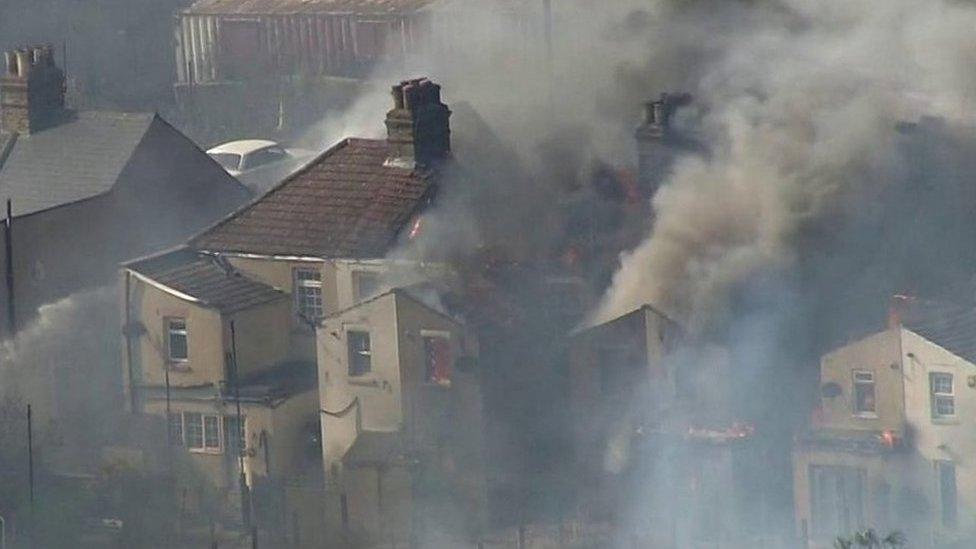
Smoke poured from buildings that caught fire after the blaze began on grassland
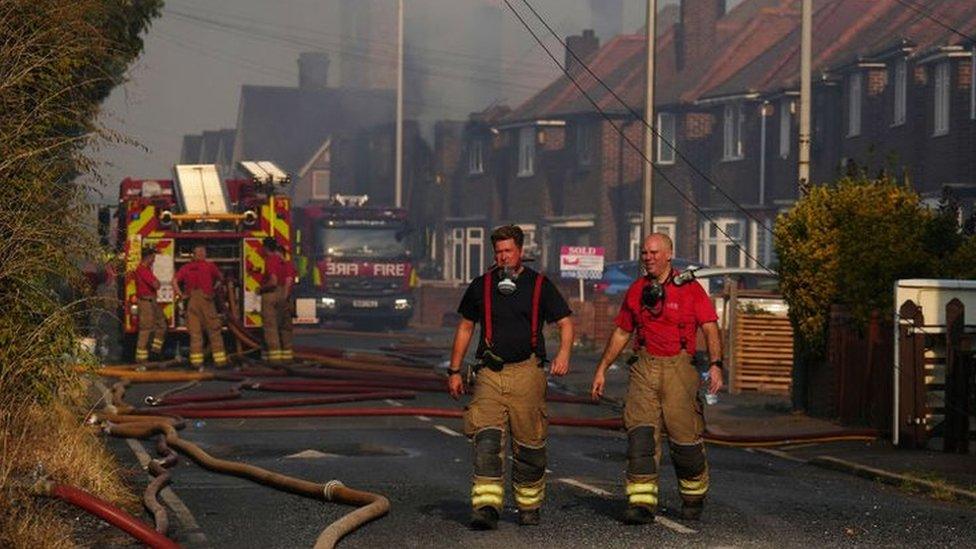
The Wennington fire was "unique", Mr Singleton said
The blaze in Wennington was "unique", Mr Singleton said, in that the grass fire in the field was contained but then "embers were spotting" and ended up burning homes and a church.
Residents pitched in to help crews, who were "working tirelessly", by helping to pull heavy water-filled hoses around the burning homes, a response Mr Singleton said was "a credit" to everyone involved.
Speaking about the challenges of the day, he said there were a number of callouts where a great deal of appliances were needed - a 30-pump fire, a 15-pump fire - "as well as our normal day-to-day".
Mr Singleton added: "Any service is going to be put under enormous pressure when we have to deal with business as normal alongside grass fires all over London. We also had high-rise fires, road traffic collisions, house fires, and a callout to Oxford Circus Underground station."
There have been many fires for the service to tackle during the heatwave, which started on 8 July, including a blaze in the basement of the Admiralty pub in Trafalgar Square last Wednesday.
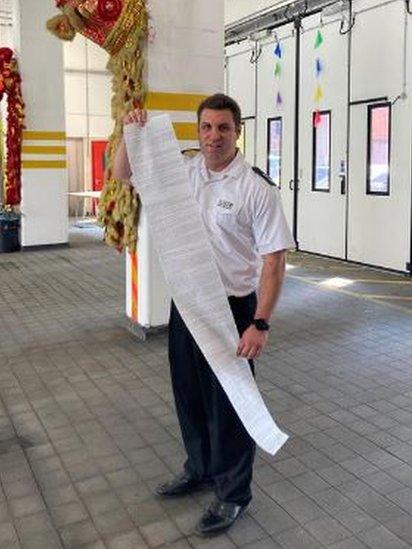
Tim Martin said it was "devastating" to see people's homes destroyed
Tim Martin, station officer for Soho's red watch, was at the scene that day, as well as at a fire in Pinner on Tuesday, which destroyed at least four homes and a church.
Although firefighters are trained to deal with extreme heat, working through a heatwave adds "an extra layer of complexity", he said, putting firefighters at more risk and reducing the time they can spend close to the fire.
The number of firefighters at the Trafalgar Square blaze had to be doubled so they could rotate in and out of the building due to the heat.
Mr Martin said: "A subsurface incident is pretty dangerous for us because the heat only really has one way to escape and that's the way we're entering and exiting the building - that access is effectively a chimney, filled with heat, smoke and products of combustion.
"We were finding temperatures very, very hot last week, so that heat barrier is particularly dangerous to go through but we needed to do it."
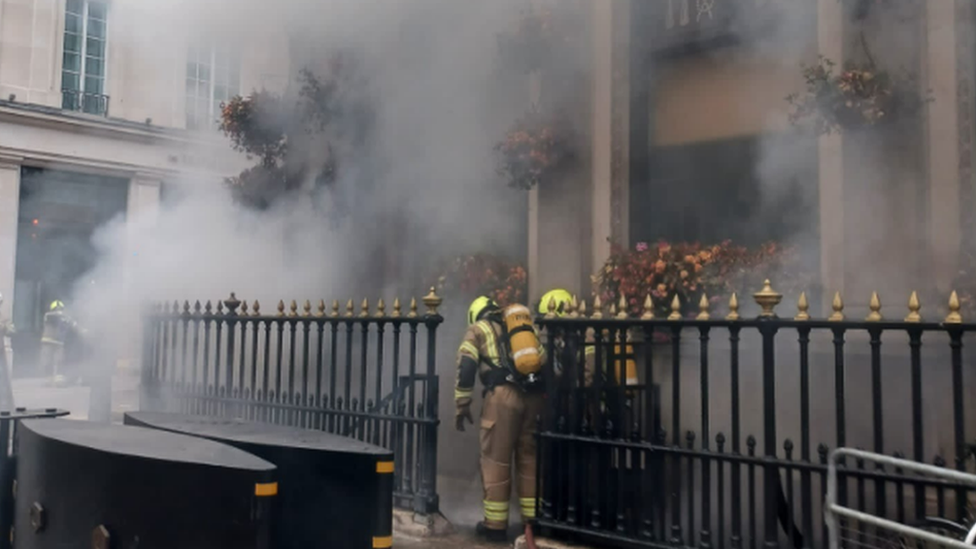
Smoke billowed from the basement of the pub
Thankfully, Mr Martin said, a large group of schoolchildren in the basement had been evacuated early on and did not need rescuing.
"It's hard enough trying to put out a fire, let alone rescue people," he said. "The pub staff did really well to evacuate them."
Mr Martin was also at the Pinner fire on Tuesday, where he said the even hotter weather made crews' work really arduous.
"Your body temperature stays high," he said. "We have techniques to try and cool down like placing your hands and wrists in a bucket of cold water... but yesterday felt like you could never cool down."
He said it was "just devastating" to see people's homes destroyed and his heart went out to everyone who lost property during the fires, adding: "That's why we work so hard, often without rest periods, to make sure we save as much as possible."

Follow BBC London on Facebook, external, Twitter , externaland Instagram, external. Send your story ideas to hellobbclondon@bbc.co.uk, external
Related topics
- Published19 July 2022
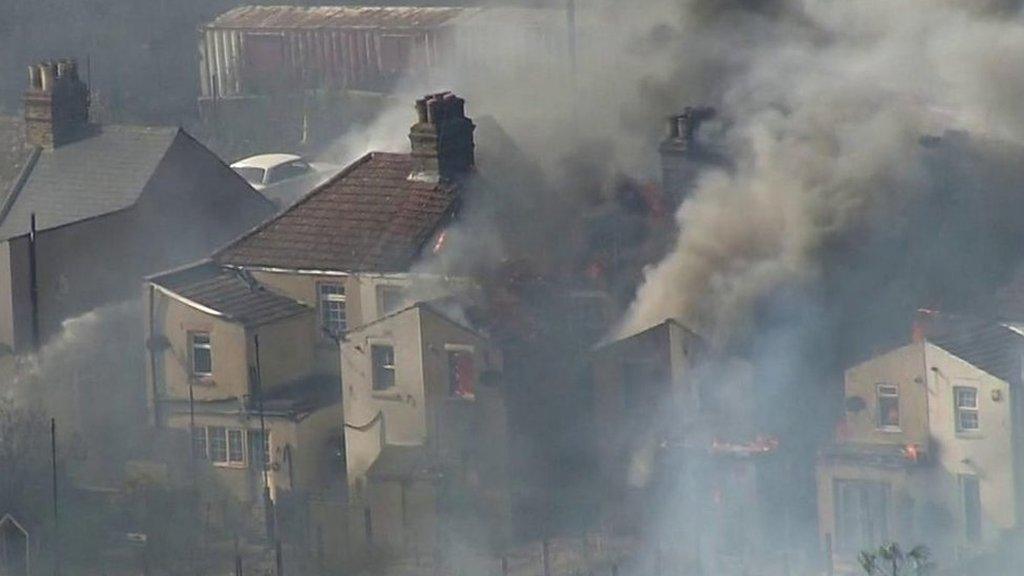
- Published19 July 2022
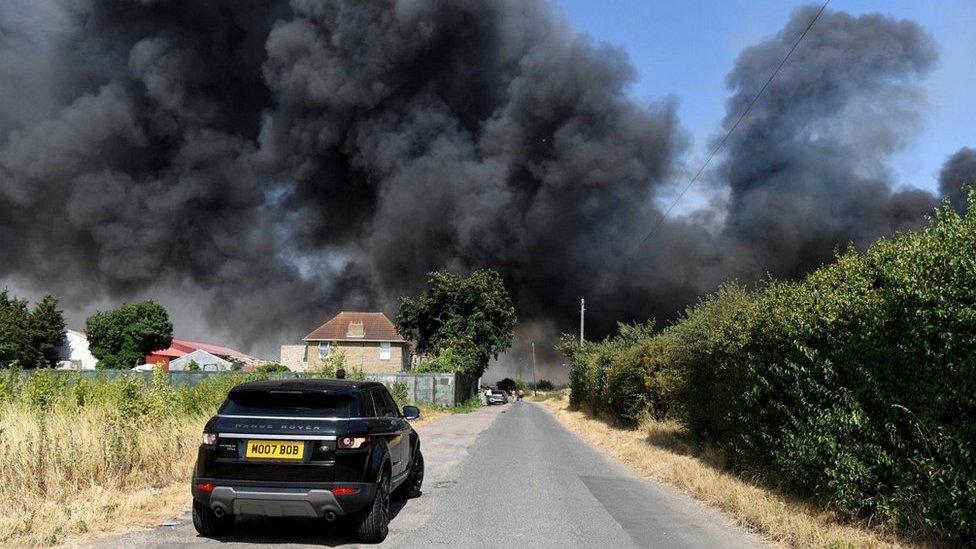
- Published13 July 2022
